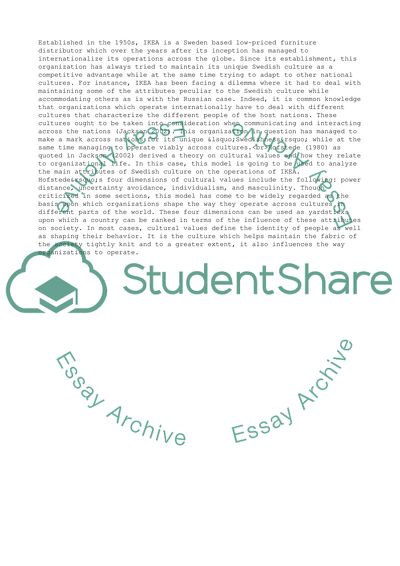Cite this document
(Why IKEA Is Fed up with Russia Dissertation Example | Topics and Well Written Essays - 2500 words, n.d.)
Why IKEA Is Fed up with Russia Dissertation Example | Topics and Well Written Essays - 2500 words. Retrieved from https://studentshare.org/business/1739811-ikeas-swedish-ways-of-managing-in-russia-in-subject-of-hrm-cross-culture-management
Why IKEA Is Fed up with Russia Dissertation Example | Topics and Well Written Essays - 2500 words. Retrieved from https://studentshare.org/business/1739811-ikeas-swedish-ways-of-managing-in-russia-in-subject-of-hrm-cross-culture-management
(Why IKEA Is Fed up With Russia Dissertation Example | Topics and Well Written Essays - 2500 Words)
Why IKEA Is Fed up With Russia Dissertation Example | Topics and Well Written Essays - 2500 Words. https://studentshare.org/business/1739811-ikeas-swedish-ways-of-managing-in-russia-in-subject-of-hrm-cross-culture-management.
Why IKEA Is Fed up With Russia Dissertation Example | Topics and Well Written Essays - 2500 Words. https://studentshare.org/business/1739811-ikeas-swedish-ways-of-managing-in-russia-in-subject-of-hrm-cross-culture-management.
“Why IKEA Is Fed up With Russia Dissertation Example | Topics and Well Written Essays - 2500 Words”, n.d. https://studentshare.org/business/1739811-ikeas-swedish-ways-of-managing-in-russia-in-subject-of-hrm-cross-culture-management.


